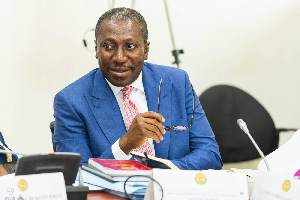Tamale, Nov. 16, GNA – The Centre for Continuing Education and Interdisciplinary Research (CCEIR) of the University for Development Studies (UDS) has taken conflict management and peacebuilding to another level by building the capacities of security personnel, peace builders and other stakeholders to ensure the prevalence of peace in the Northern parts of the country.
The UDS through CCEIR is using local and indigenous expertise in conflict management and peacebuilding to contribute to efforts being undertaken by other institutions in the country to manage and control conflicts, especially as the country goes into election 2012.
Prof. David Millar, the Pro-Vice Chancellor of the UDS addressing the opening ceremony of a national conference on conflict management and peacebuilding in Tamale on Tuesday, said conflicts originate from the family level and explode to the entire society.
The national conference which is being supported by the United Nations Educational Scientific and Cultural Organization (UNESCO) brought participants from various parts of the country, particularly the three Northern Regions.
It was under the theme; “Conflict management and peace building for poverty reduction in Northern Ghana”. Participants were taken through various topics including conflicts and their effects on development in the Bawku Traditional Area, the relationship between conflict and poverty in Ghana, and building Inter-party dialogue for a peaceful Ghana.
Prof Millar said conflicts were a normal part of society and it was usual for conflict to occur, but that the major problem was how to manage conflicts such that they do not become injuries to society. He suggested that tolerance was the best tool to manage conflicts.
He said a lot had been done in the country in the area of conflict management and mentioned the Kofi Anan International Peackeeping Centre and other institutions as part of interventions to nib conflicts in the bud, adding that the UDS was equally committed to the peace process through the CCEIR.
He noted that peacebuilding and conflict resolution experts must be guided by their motives before initiating the peace process, adding that "If you enter into a conflict situation with war lenses, you are likely to judge the situation as war". He advised peace builders to be cautious.
Kpan-Naa M. Bawah, Member of the Council of State who presented a paper on the role of chiefs in peace building in Ghana noted that the role of chiefs in the country had changed from the diffused differential authority in colonial times to a restriction only to traditional issues.
He said the role of chiefs in conflict management was indispensable because chiefs were revered and offered exemplary leadership, thereby making a difference in conflict management when consulted.
He observed that over the years, chiefs had been selected by various governments to be part of peace committees and mediation teams. Mrs. Charity Amamoo of the Ghana National Commission for UNESCO noted that people's ignorance of their diverse culture had been a common cause of wars throughout history, and that suspicion and mistrust had also too often broken into crisis.
She urged the state to build peace constantly and strive to find lasting peace, especially as election season was fast approaching, saying that “Real peace must be founded upon intellectual and moral solidarity of all of us as Ghanaians”.
Regional News of Wednesday, 16 November 2011
Source: GNA
UDS steps further on conflict management
Entertainment











